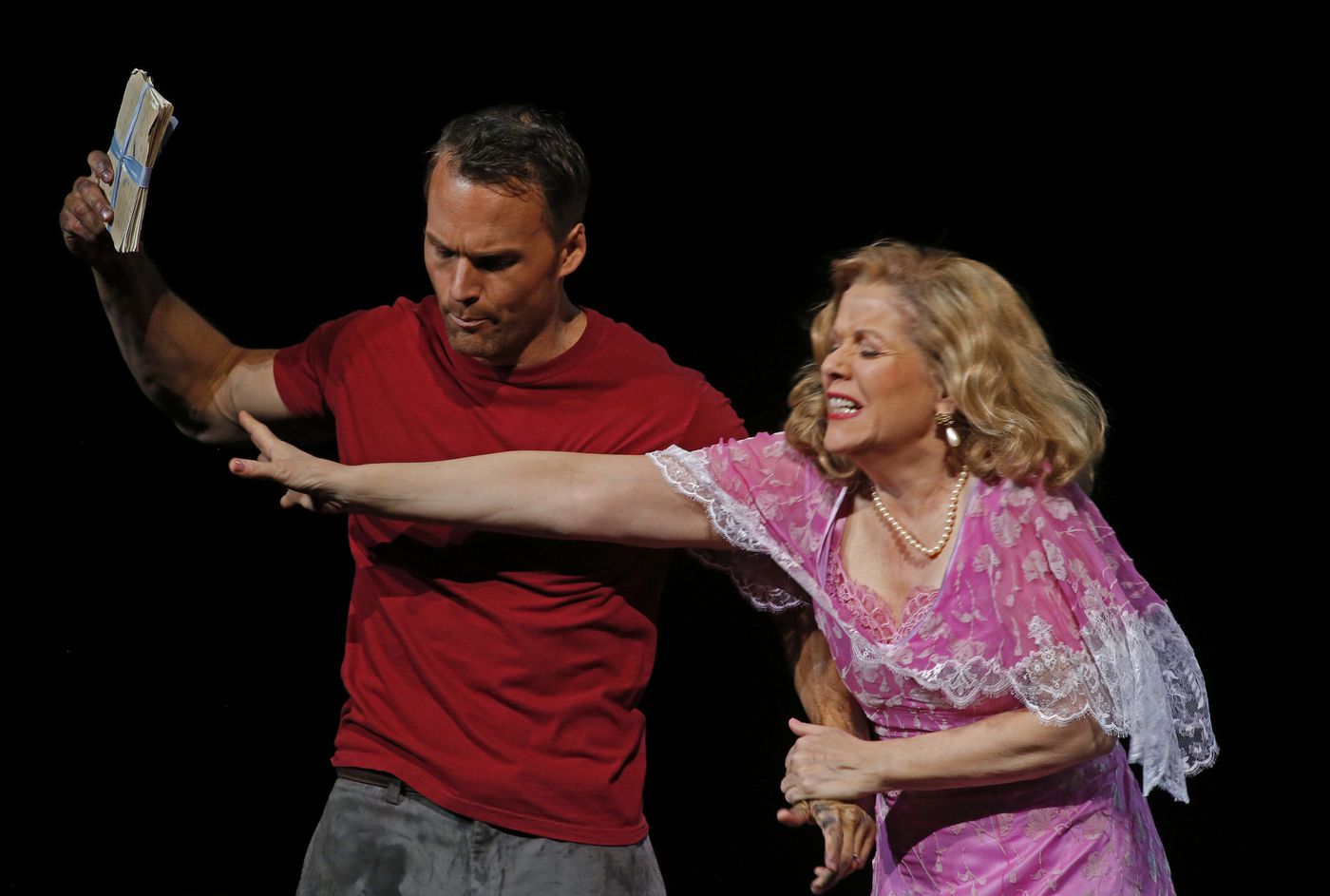
Theatrical victory belongs to Blanche in ‘Streetcar’ opera
By Charles McNulty, Los Angeles Times
One of the great interests in any revival of the Tennessee Williams classic “A Streetcar Named Desire” is seeing how a production will negotiate the balance of theatrical power between Blanche DuBois and Stanley Kowalski.
There’s no question where things stand in the L.A. Opera presentation of André Previn’s “A Streetcar Named Desire,” which has its final performance at the Dorothy Chandler Pavilion on Saturday. Renée Fleming’s magnificent Blanche dominates the stage in every scene that she’s in. The tragedy belongs to her character — and it’s personal, achingly so.
Fleming is quite simply the best Blanche I’ve seen since Elizabeth Marvel brutally assayed the role in Ivo van Hove’s brilliant deconstruction at New York Theater Workshop in 1999.
Some revivals of “Streetcar” accentuate the social context, turning the play into a commentary on modernity’s final erasure of the antebellum South. Others focus on the sexual dynamics, the collision of carnality and flirty repression, male aggression and female wiles.
In Williams’ drama, two titanic characters compete for the soul of a third, Stella, Stanley’s pregnant wife and Blanche’s placating sister. Because the combatant roles are so large and dependent to such a great extent on the stature of the actors inhabiting them, the play is ever-shifting in performance.
When Elia Kazan cast Marlon Brando as Stanley in the original Broadway production, he initially feared that the sheer charismatic force of Brando’s acting had tilted the play off its axis. During the New Haven tryout for the Broadway run, Kazan wondered if he had made a mistake in casting this young scene-stealer: “The audiences adored Brando. When he derided Blanche, they responded with approving laughter. Was the play becoming the Marlon Brando Show?”
Jessica Tandy, who played Blanche opposite Brando’s Stanley, grew in power as the play wended its way to New York. Kazan wound up casting Vivien Leigh in the movie version, but his stage experience with “Streetcar” led him to the following insight: “In the end, the play was the event, not the cast, not the director. The play carried us all. In the years to come this masterful work, written out of Tennessee’s most personal experience, asking no favors, no pity, no special allegiance, always moved its audience. There was no way to spoil ‘Streetcar.’”
This opera adaptation — with a libretto by Philip Littell closely following Williams’ play and Previn’s score seeking always to honor the lyricism of the drama, not overwhelm it — centers on Blanche’s experience. Her hallucinatory flashbacks of her ill-fated marriage seem to emerge as much from the production as from her mind, so closely are the two expressionistically bound up with each other.
Ryan McKinny’s Stanley has a masculine beauty that is attention-grabbing in its own right. Director Brad Dalton capitalizes on this asset, making sure McKinny’s washboard abs are frequently in view and surrounding Stanley with poker-bodies of similar blue-collar sex appeal.
But both the music and drama are channeled in one direction. The pathos is all Blanche’s, the villainy all Stanley’s, and not even Stacey Tappan’s wonderfully earthy Stella can fool herself into thinking otherwise. The compromises Stella makes, the delusions she goes along with leave her rattled at the end. There is no whitewashing of the reality that Blanche has been raped and is now being dragged to a psychiatric hospital because for life to continue at the Kowalskis this troublemaker must be disposed of
This may sound schematic, but Fleming manifests an interior complexity in her singing and her acting that ensures no drop off in dramatic magnitude. She is that rare opera star whose expressive vocal potential is nearly matched by a gestural eloquence. If this was “The Renée Fleming Show,” it was also a reminder of where the cathartic source of Williams’ drama lies.
The final image of Blanche in white beside a young man recalled her tragic wedding, the innocence that was destroyed and the genteel hope that has now been crushed for good.
However incomplete the interpretation, it was the most moving rendering of Williams’ masterpiece since Van Hove’s harrowing anti-realistic staging with the aptly named Marvel dominating her production with the same fearless emotional command as the equally marvelous Fleming.